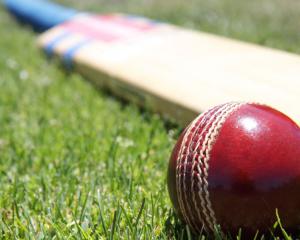
If you win the toss you bat, bat, bat and when you are thinking about bowling first, you bat.
There are some obvious exceptions to the rule but it is a long-held convention.
History stands witness to how difficult batting can be on the last day of a test or first-class game. No matter how tricky or dicey conditions may look, batting is usually more difficult during the last session than in the first.
Hence, everything else being equal, you bat first. You get through the opening session, you take the paint off the ball, you make the bowlers work for their wickets and, if everything has gone to plan, you start to prosper. From then on, you should be in control of the game. It is the team batting second that has to worry about the follow-on mark or whether there will be a sporting declaration or not.
But you know all that. It is cricket 101, right?
Well, Otago has ditched that script this summer, preferring to bowl first instead. In eight first-class games this season, Otago has won the toss six times and elected to field first five times.
On the two occasions when Otago captain Derek de Boorder has lost the toss, the opposition has elected to bat. So, in eight games, Otago has batted first just once.
Witha record of four wins, three draws and a loss, perhaps there is something to be said for fielding first after all. Otago coach Vaughn Johnson believes so.
‘‘The trend in twenty/20 cricket was to bat first and put some scoreboard pressure on, but it is not the same in four-day cricket,'' Johnson said.
‘‘Cricketing decisions are the most important thing when you look at the wicket on day one. In Queenstown [last week] there was a tendency to want to bat but after a discussion with Derek, we decided it was probably a good idea to bowl.
‘‘There was some grass on the wicket and if it was going to do anything, it was going to do it in that first hour. It was a decision based on what our strength is.
‘‘In four-day cricket, generally the wickets are going to do more than any twenty/20 wicket, as everybody knows. A lot of the time it depends on overhead conditions or if there is any moisture around or in the wicket, so you can't really go into the game thinking what you're going to do before you see the wicket.''
The decision to field first against Northern Districts certainly worked in Queenstown. Otago won by eight wickets, thanks to Ian Butler's 10-wicket haul in the match and a fine century from Hamish Rutherford.
The same tactic paid dividends a week earlier in Dunedin. The pitch at the University Oval was batsmen-friendly, yet Otago decided to bowl first and made headway, dismissing Wellington for 254 and posting an Otago record score of 651 for nine declared.
Otago has not won the first-class title since 1987-88 but has an excellent chance of breaking the drought this summer. With two games remaining, Otago trails competition leader Central Districts by just 13 points, with a maximum of 40 points still up for grabs.








